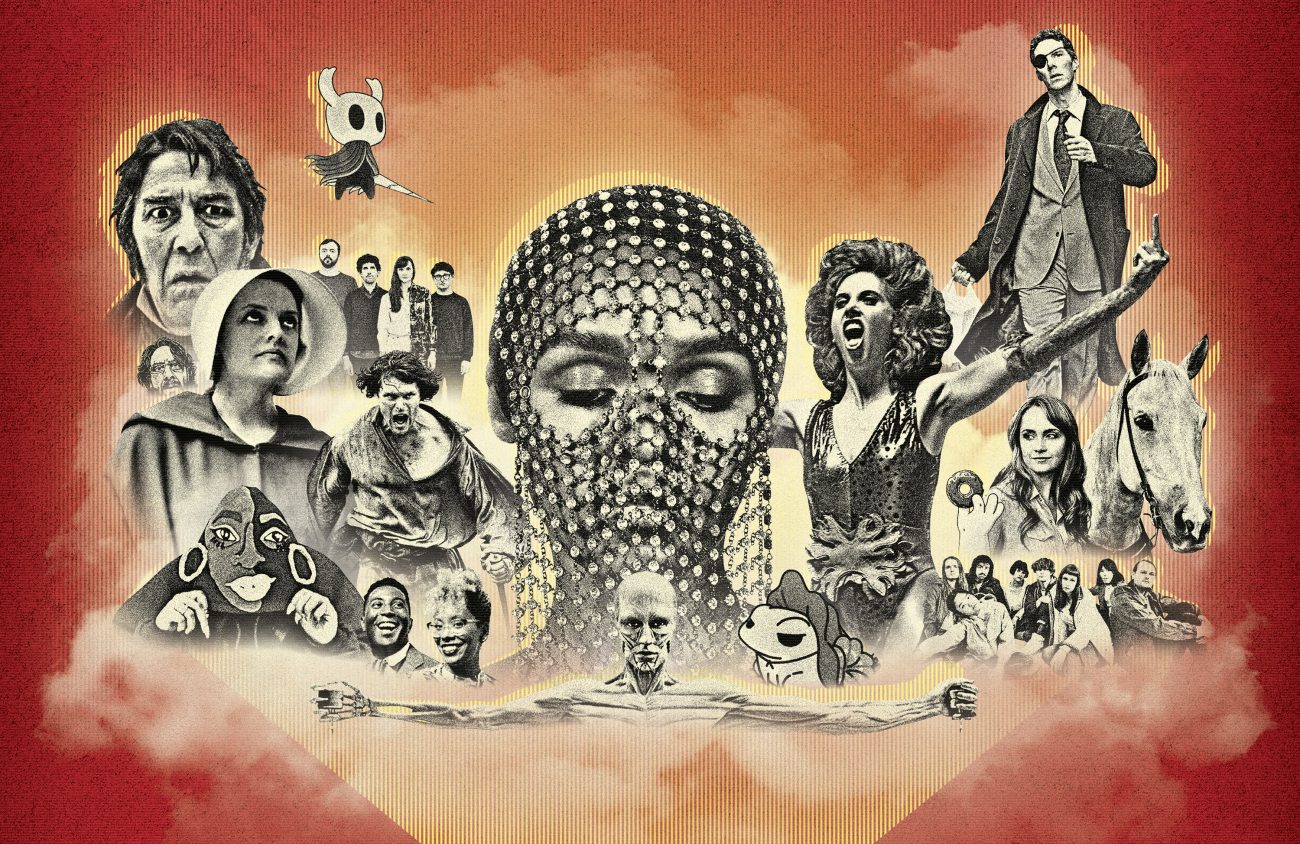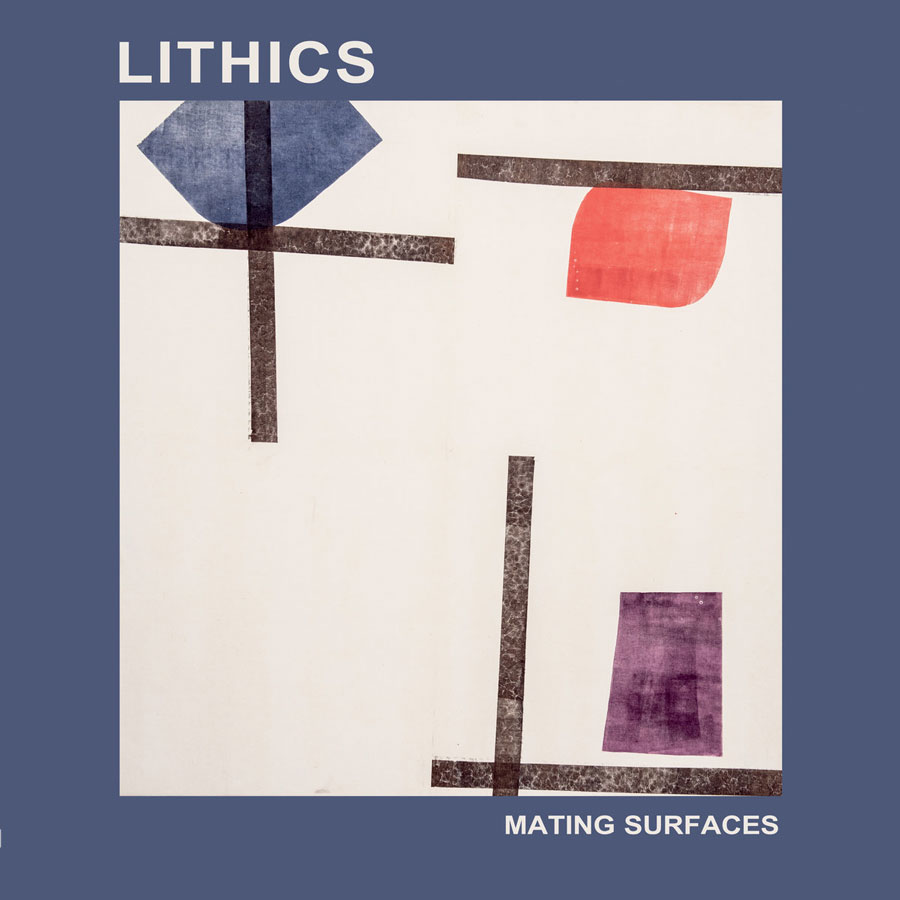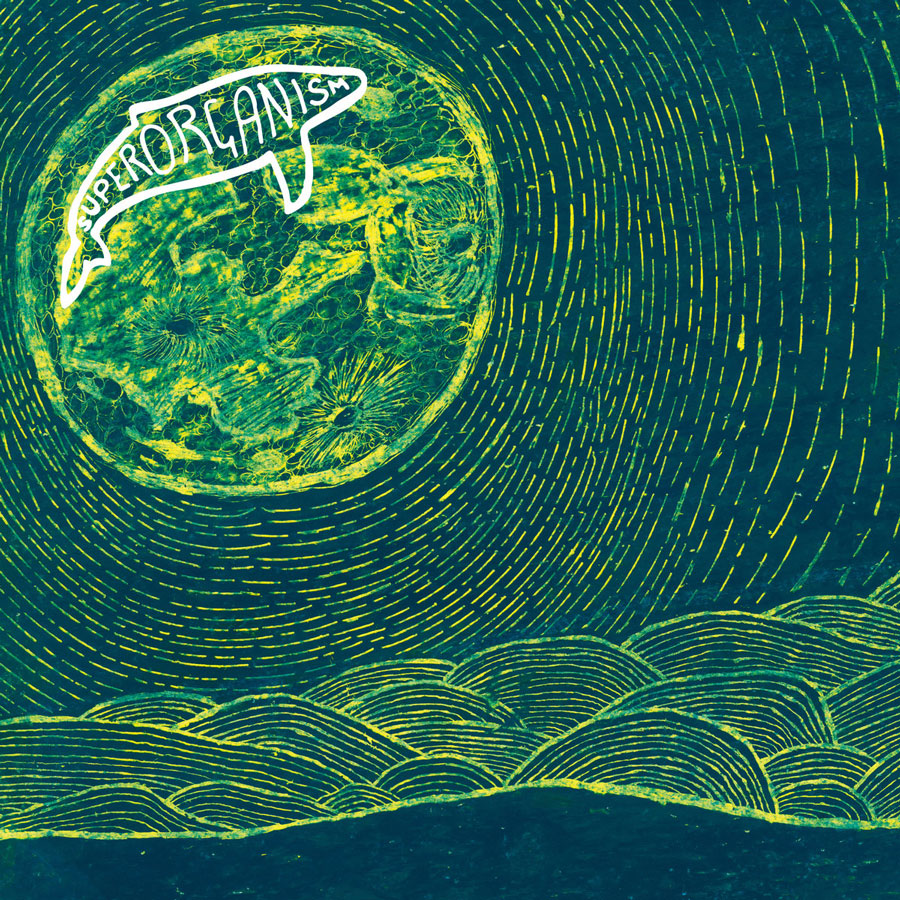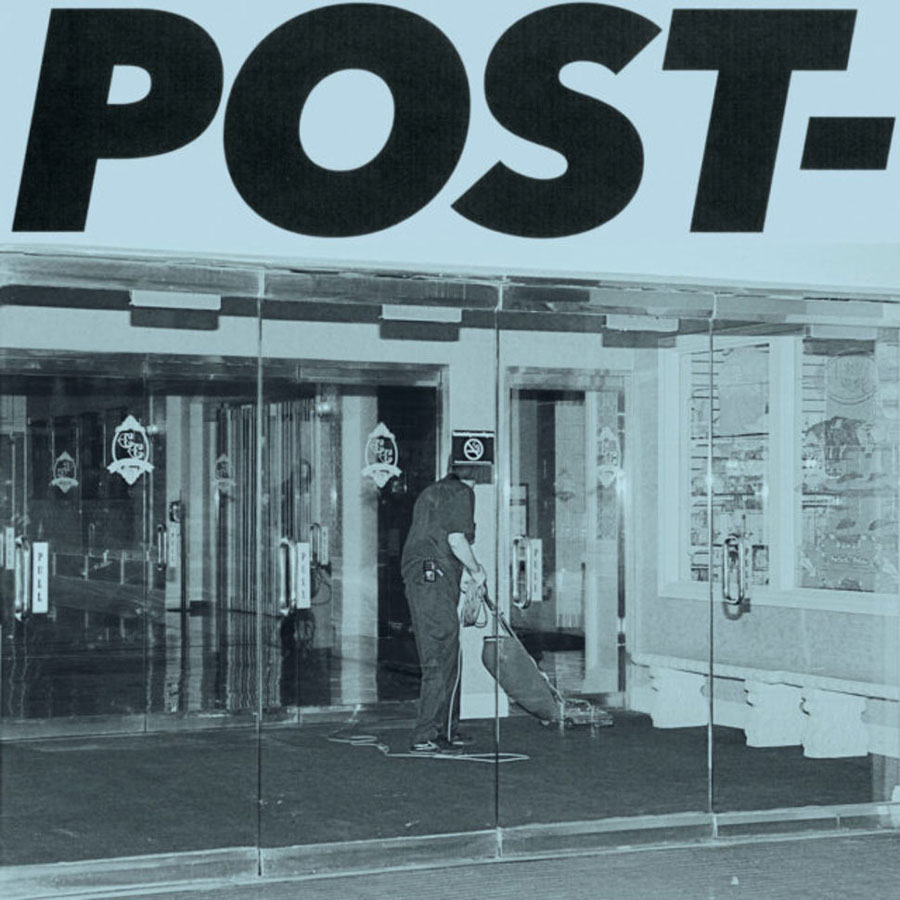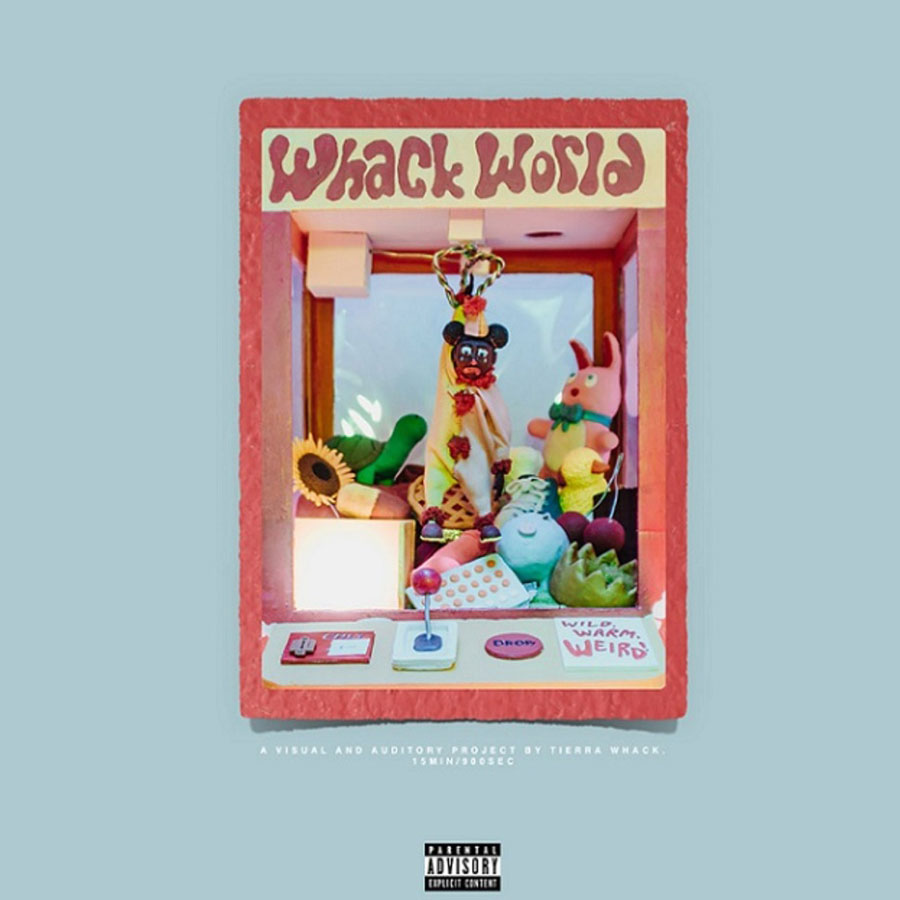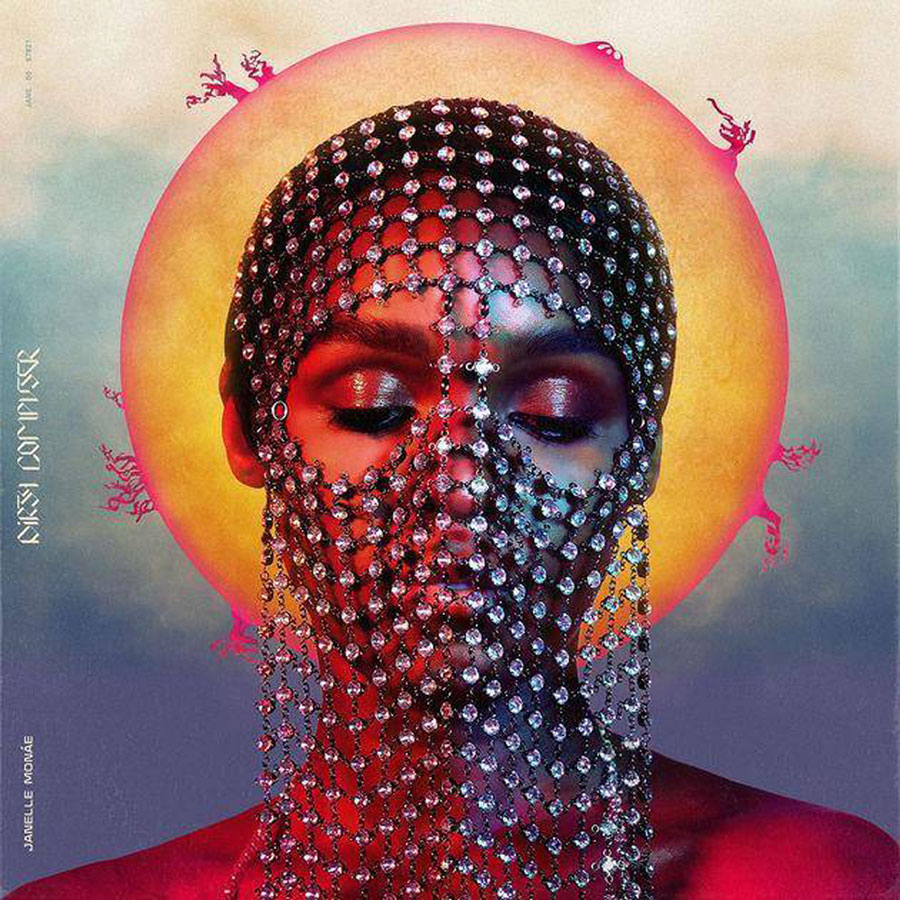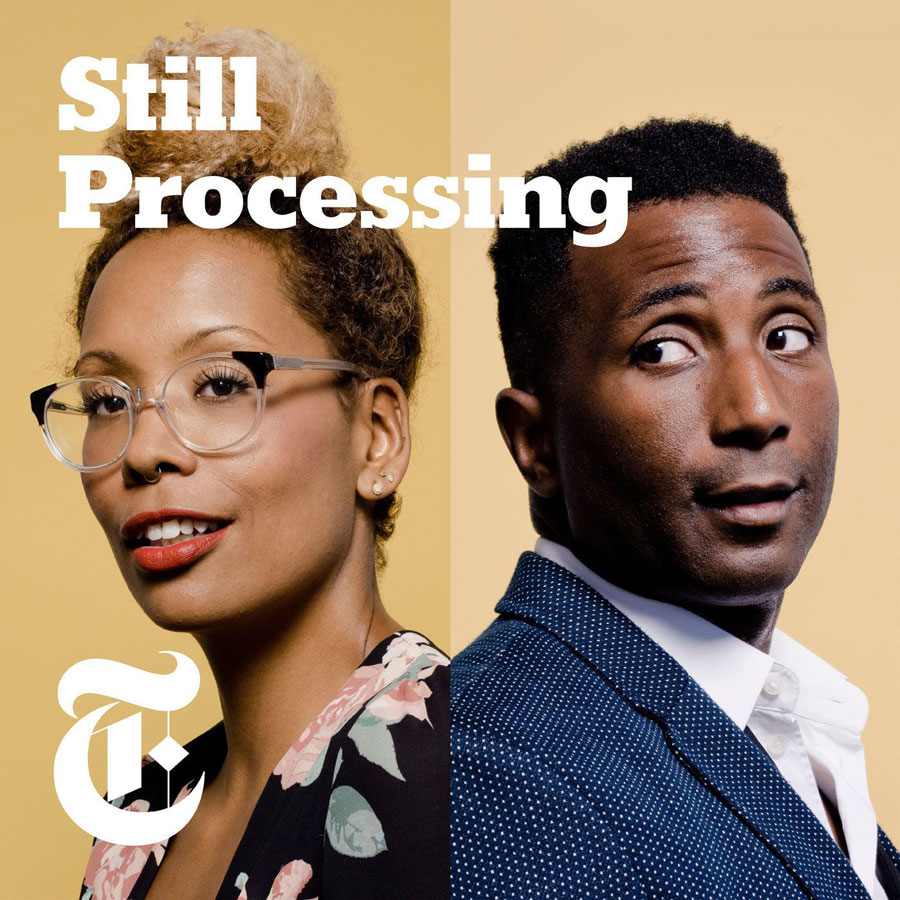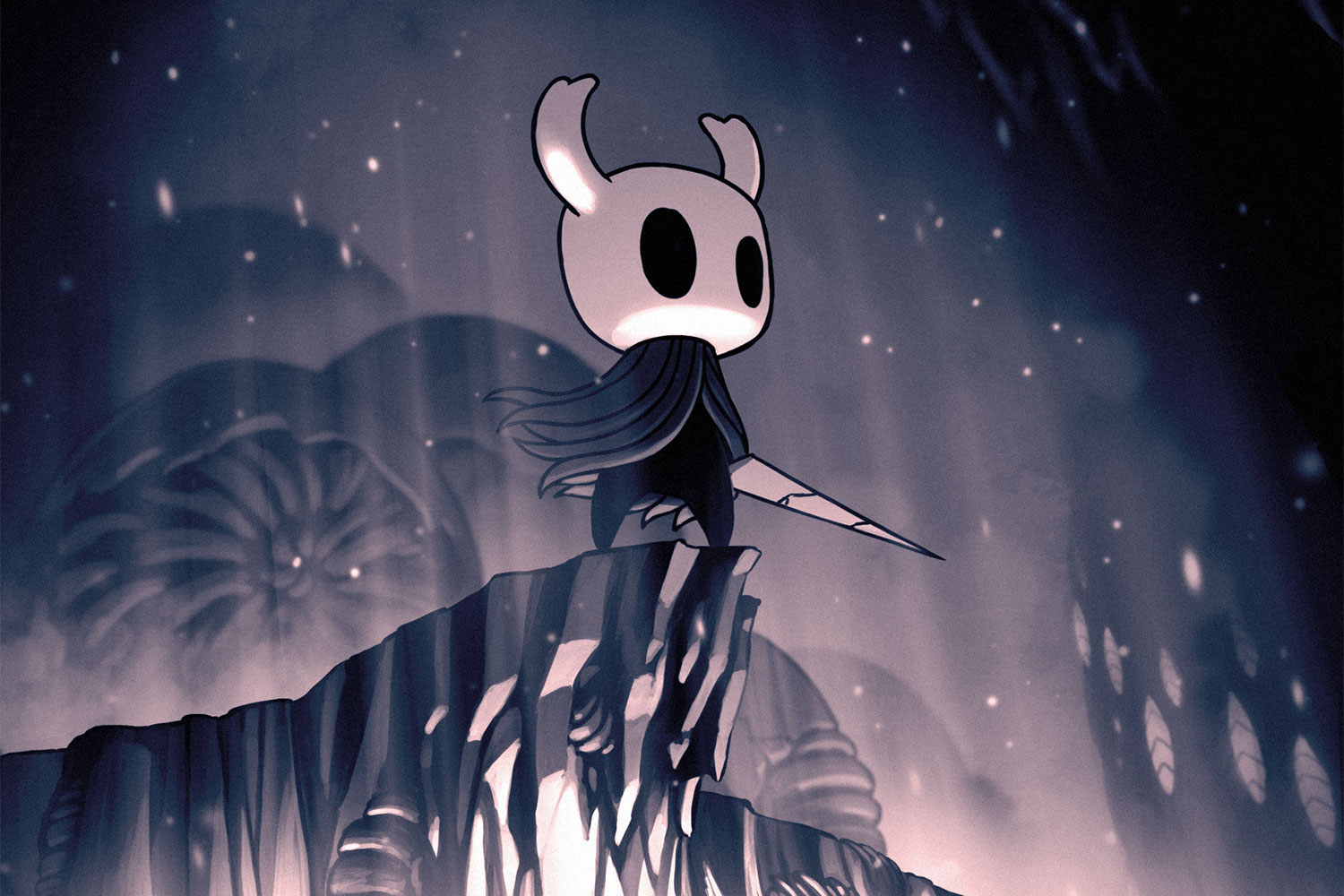Here at Eugene Weekly we are lovers of print, there’s no denying it. Books, newspapers, magazines, food labels — whatever. That said, we’re no Luddites, either, and from conversations around the office to chats in the checkout line at Kiva downtown, we find ourselves focusing on what we are downloading. From podcasts to games to television to music, we fill our iPhones, Androids, laptops and tablets with media we can plug into and play as we hide from the heat outside.
Here are a few of our favorites.
Music
Disjointed Grooves
Mating Surfaces, the 2018 Kill Rock Stars debut from Portland art-rockers Lithics, builds angular and disjointed grooves that initially seem to be going all directions at once before coalescing into a kind of oblique internal logic and playfully aloof sense of humor. Vocalist Aubrey Horner murmurs artfully inscrutable word soup while guitars and drums battle for prevalence. She draws unlikely connection between everyday objects: an edible door, a mating surface. Occasionally her steely gaze lands on the mundane: a glass of water, a flat rock. She holds up objects, inspecting them with the anthropological curiosity of a space alien. Overall, Mating Surfaces is anxious and over-caffeinated post-punk: think Gang of Four or Devo. It’s a little like wandering through the windstorm of modern media overload, disconnecting with the chaos and emerging on the other side emotionally, and refreshingly, just fine—because to fully embrace the trauma would fry every last circuit on the board. — Will Kennedy
Melting Pot of Pop
Art-pop eight-piece Superorganism came out of the gates swinging this year with its self-titled full-length debut. The group’s style is a melting pot of pop, avant-garde, psychedelic and random sound effects. Seriously, check out their NPR Tiny Desk performance. One member is blowing through a straw into a cup of water; another is splashing liquid in a bucket next to the mic. Although it’s wacky, Superorganism is far from disorganized or sloppy. Its sound is well-curated, layered and mixed with precision throughout the 10-song album. Songs range from throbbing psych-pop jam “Something For Your M.I.N.D.” (led by effortlessly cool, slacker vocals akin to a modern day “Loser” by Beck) to “Night Time,” a synth-heavy tune packed to the brim with joy, perfect for sunny car rides. Reminiscent, and honing the best parts, of bands like Flaming Lips, Tame Impala and early MGMT, Superorganism is a must-have on any summer playlist. — Meerah Powell
Rotating POST-
Jeff Rosenstock’s newest full-length album, POST-, has been on heavy rotation in my house, probably because of its overwhelming relevance to this current point in time and space that we’re occupying as Americans. (Also, it’s just a really great album). It’s full of frustration and anxiety mostly revolving around the big bad revelation that there’s nothing we can really do as individual citizens to affect the political climate or, needless to say, the world at large — “What’s the point of having a voice when it gets stuck inside your throat?” Rosenstock sing-screams in the track “Yr Throat.” POST- finds balance in ferocious, no-holds-barred aggression at points, and melancholy gut-punches at others. It asserts the defeated realization of an “every-man-for-himself” mentality, while still holding dear the importance of love and support from friends. Veteran musician Rosenstock, formerly of ska and punk acts like The Arrogant Sons of Bitches and Bomb the Music Industry!, makes his frustrations and nervous energy tangible through fast-paced tracks like “Powerlessness” and pounding sing-along anthems like “Let Them Win.” If you’re a fan of this album, make sure to catch Rosenstock live. He’s probably the only musician I can say I’ve seen play the saxophone and crowd surf at the same time. — Meerah Powell
Whack in the Best Way
Tierra Whack’s Whack World is true to its name. It’s wacky, but in the best possible way. The album, Whack’s debut, shuffles through rap, hip-hop and R&B territories in a series of 15 one-minute vignette-esque songs. Whack World is accompanied by a visual music video album available on YouTube, blurring the lines between art and music, or rather, revealing that the two can occur simultaneously, and brilliantly. Even without the visual accompaniment, Whack World stands on its own. Each one-minute track is a window into the creative mind of Whack. Songs jump effortlessly into each other with no choppiness, even if their styles are opposing. Though a relatively new artist, at least as far as recorded work goes, Whack’s flows are on-point and unique. Whack World was clearly curated with ingenuity and is a testament to the fact that not every masterpiece of an album needs to be at least a half-hour or longer. — Meerah Powell
Janelle Monáe’s Futuristic Album Sends You Dancing
Dirty Computer, Janelle Monáe’s third studio album, was released in April, combining relevant Afrofuturism with progressive feminism, queer liberation and — importantly — really, really catchy music. Monáe, who recently told the public that she identifies as pansexual, uses her black queer femininity to create an utterly unique sound for the android age.
One of the most exciting parts of the album is the late-icon Prince’s collaborative efforts. Prince’s DJ Lenka Paris said Prince wrote the synth line for one of the album’s singles, “Make Me Feel,” and to me it sounds like “Kiss.”
Other collaborators include Brian Wilson of The Beach Boys and singer-songwriter Grimes, who is also infamous for being involved with Elon Musk of Tesla. Tessa Thompson, an actress who is blowing up on the big screen and said to be romantically involved with Monáe, appears in the visual album — “emotion picture” — for “Dirty Computer,” and fans are really all about it.
My favorite songs on Dirty Computer are “Crazy, Classic, Life,” “Take a Byte” and “Pynk.” They’re dance tunes and true earworms. The whole album should inspire you to take a deeper look into the Afrofuturist movement and encourage you to check out the art coming from queer people of color. When the world feels totally out of my control, I’ll put my faith in Monáe. — Taylor Griggs
Television
Enlarge
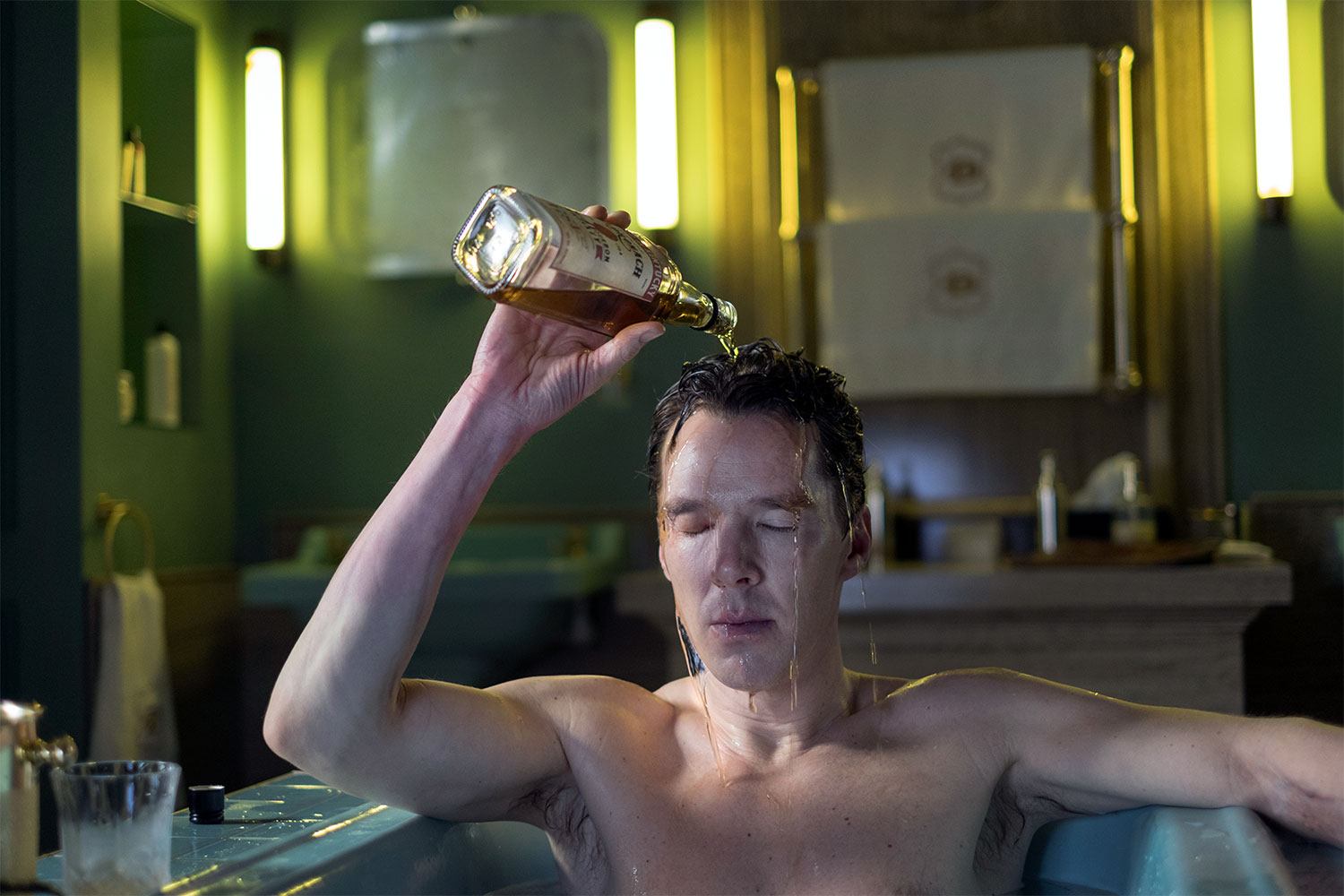
Photo by George Kraychyk/Hulu
Benedict Cumberbatch as a Tortured Upper Class Brit
If there’s one show that characterizes the fact that money doesn’t buy happiness, this is it. Benedict Cumberbatch plays the title character in Showtime’s Patrick Melrose, a mini-series based on semi-autobiographical novels by English writer Edward St. Aubyn. The five-episode series follows the life of Patrick Melrose, a member of the British upper class riddled by trauma from his childhood and substance abuse issues. The series follows Melrose’s ups and downs for a span of about 20 years, tackling bouts of infidelity, abuse, strained parental relationships and recovery. Due to its content, Patrick Melrose is less entertaining than it is harrowing. That said, it’s not an entirely depressing show. It takes a realistic look about how trauma is passed on from generation to generation, and the lengths to which one must go to break that pattern. Cumberbatch, as always, does a wonderful job, truly encapsulating his character’s anger, sadness, cunning and determination to not let the past dictate the future. All of Patrick Melrose is available on Hulu. — Meerah Powell
What’s Grandpa Up to This Week in Canada?
I’m eight seasons into the Canadian television show Heartland on Netflix. Episode after episode, the heartwarming adventures of horse trainer Amy, her hot boyfriend Ty and the whole Heartland ranch family somehow fail to grow old. And trust me, there are a lot of episodes — about 18 a season.
In a nutshell, Amy and older sister Lou’s mom dies and the girls and grandpa are left shattered, with a ranch full of horses to train and juvenile delinquent (Ty) ranch hand as help. Luckily, with minor exceptions, nothing truly bad ever happens in Heartland, which is set somewhere around Alberta near the Canadian Rockies with a surprisingly not all-white cast (sorry Canada, I stereotyped you).
Adorable characters, adorable animals, adorable small children. Heartland is a light, fluffy Canadian antidote to a U.S. reality that makes me crabby most days of the week. Season 12 starts in winter 2019. — Camilla Mortensen
Enlarge
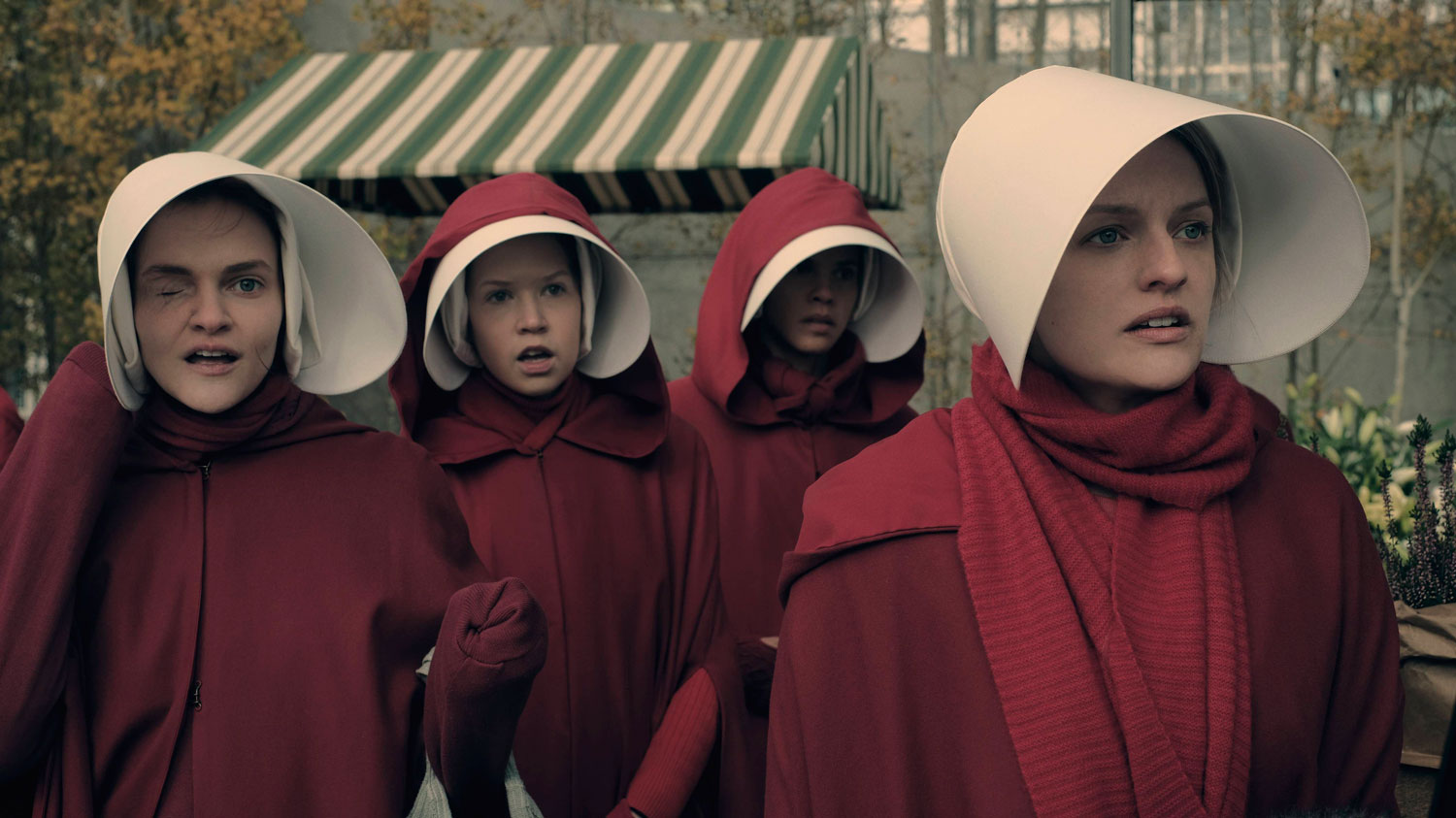
Photo by George Kraychyk/Hulu
A Dazzling Interpretation of the Classic Dystopian Novel
As a voracious reader and aficionado of the dystopian fiction genre, I have to admit that I was nervous when I learned that Hulu would be releasing a television adaption of the classic Margaret Atwood novel. Having read The Handmaid’s Tale several times, I was unsure how the emotion and terror of living in Gilead could truly be translated on screen, and how the storyline would work as a series.
Season one came out on Hulu in 2017. I was instantly hooked. The adaptation is incredible, not losing a single molecule of the intense sentiments found in the book. Nine times out of 10, I will tell you the book is better when a story is presented in film, but with The Handmaid’s Tale, I confidently say they are both equally harrowing and downright amazing.
The first season followed the book scene by scene and, given the current state of our nation, the parallels were scary at times. With the season finale, the show ends exactly how the book did. This is where things got really interesting for me — where would they go from here? If you are anything like me, you know the worst part of a truly great book is the abrupt end in the story — not knowing what happens next.
When I finished reading Atwood’s book, I wanted more. Hulu’s series gave me just that with season two of The Handmaid’s Tale, even involving Atwood in the writing of the script. The second season is darker than the first. It’s not for the faint of heart. The opening sequence of season two, also on Hulu, left me speechless and feeling an array of emotions — all without a single word being spoken. It was the best 15 minutes of television I have watched in a very long time, and each episode gets better as the season continues.
Elisabeth Moss’ portrayal of Offred, the main antagonist, is worthy of every award in the book, and truly places her as one of the greats in the acting community. The Handmaid’s Tale certainly has some trigger-worthy scenes and delves into a world of darkness, but it is a must-watch. — Elisha Young
What Happened to the Real-life Franklin Expedition
Based on the excellent bestselling novel by Dan Simmons of the same name, AMC’s limited series The Terror is engrossing historical fiction blended with elements of fantasy and suspense. The story speculates about what happened to the real-life Franklin expedition, which disappeared in the 1840s while attempting to find the Northwest Passage through the Arctic region. To our knowledge, nobody survived.
Was it lead poisoning from badly soldered canned rations that killed the crew? Was an enormous, polar bear-like creature drawn from the traditions of the native people of the region responsible for the sailor’s unfortunate demise? Or had the arrogance of the British Empire and the folly of the very concept of empire itself finally gone too far?
Starring Tobias Menzies and Jared Harris, the show is part man-versus-the-elements survival porn (with cannibalism!), part engrossing character drama with great historical detail, and part meditation on what happens when the hubris of man crosses a line with the dark recesses of the natural world — a place of which we still know so little. Available AMC and Amazon Prime. — Will Kennedy
Time Travel Romance
Are you an intellectual feminist woman who tries to keep her love of romance novels in the closet? I’m not saying that’s me, but if that’s you, then let’s talk Outlander.
Why yes, I have read every single one of Diana Gabaldon’s voluminous tomes about the adventures of World War II nurse Clare who time travels back in time to Scotland before the battle of Culloden where she finds herself needing to marry a super-hot Highlander.
And no, the premise makes no sense. But it works, and the writing and historical research are deeply satisfying. I wasn’t sold at first when I head that Outlander would be a Starz series, but I dubiously watched the first episode. And loved it. Gabaldon is actively involved in the series and the episodes are as sexy, smart (and sometimes violent) as the books.
Outlander aficionados call the time of year with no episodes Droughtlander, and the latest drought will end in November when season four kicks off. — Camilla Mortensen
Enlarge
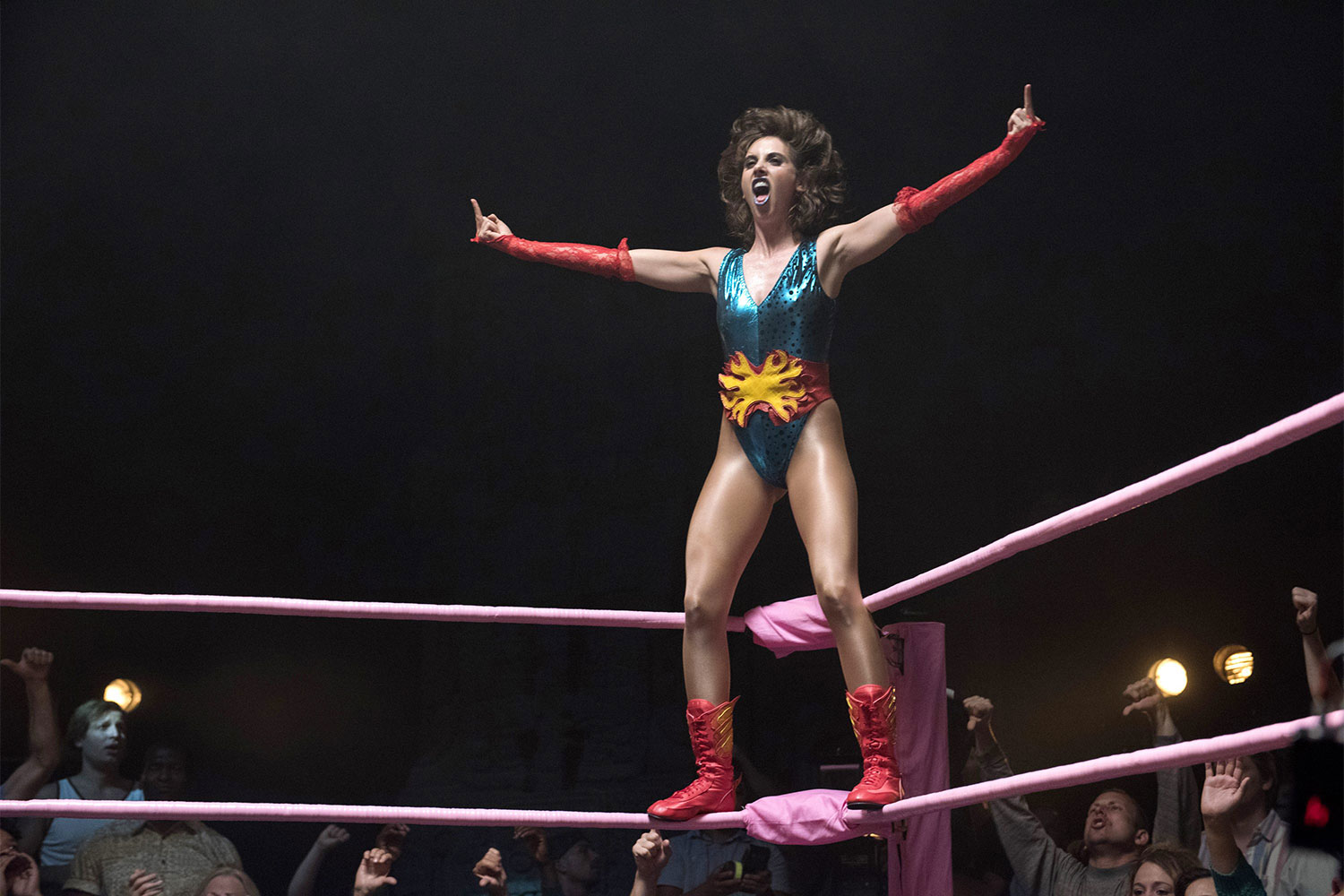
Photo by Erica Parise/Netflix
It’s Still Real to Me, Dammit!
My childhood was filled with the wonders of the World Wrestling Federation (now WWE). I was a wild Hulkamaniac, cheered on Stone Cold Steve Austin as his boss continually screwed him over, and I still get excited whenever WrestleMania happens. So, wrestling is deep in me. When I heard about GLOW, I worried that the adaptation of the women’s wrestling show from the 1980s would be bastardized into something for the Netflix mainstream. I’m glad I was wrong. Chavo Guerrero, Jr., who belongs to a long line of dynastic professional wrestlers, had the actresses train like they were attending a wrestling school. And, as he said on the Steve Austin Show, the actresses now don’t like having stunt doubles take their place in the ring. Their dedication to the art shows, since GLOW doubles as a drama and just damn good wrestling. Besides presenting tensions among female wrestlers on the show, it shows the kind of commercial adversity that would have emerged when putting on a women’s wrestling TV show, seeing as humongous male wrestlers like Hulk Hogan, Macho Man Randy Savage and Andre the Giant ran the scene. Season two is out now on Netflix, so download away — and make sure to catch the documentary about the real Gorgeous Ladies of Wrestling. — Henry Houston
Podcasts
Behind the Episodes
If you haven’t heard of the HBO series Westworld, you may be living under a rock. The series, based on the 1973 movie of the same name, began in 2016 and recently finished airing its second season. The show is about an amusement park-like facility in which the world’s rich and elite can interact with humanoid androids (kill them, have sex with them, go on adventures — you name it). The show puts forth philosophical questions of mortality, morality, consciousness and what it means to be human — but it also can get confusing due to its multitude of timelines and complex themes. That’s where Decoding Westworld comes in. The podcast follows the show episode-by-episode, offering explanations and fan theories, all with no spoilers for future episodes. It’s the perfect listen-along experience to keep up with one of the most talked about shows of the last few years. — Meerah Powell
Conversations with a Comic
You may know Marc Maron better from the hit Netflix show GLOW, now in its second season. But years ago, Maron chased his standup career with a successful podcast that mixed comedy and armchair psychoanalysis. WTF with Marc Maron feels like just what we need in the era of Trump. In a time of tweets and sound bites, it’s refreshing to hear Maron’s in-depth discussion with guests, ranging from young comics and President Barack Obama to mainstream superstars like Jennifer Lawrence and Paul Rudd. Maron often seems to get an “I’ve never told anyone about this before” confession from his guests, opening each show (famously recorded in his garage) with a confessional, comedic, observational monologue. And lately, while many of my favorite comics have fallen from grace in the age of #metoo, it’s nice to have Maron: a man honest about his own struggles in the past and continued shortcomings as a person remaining open to continued growth as a human. — Will Kennedy
Cultural Discussions
With near-constant notifications about news happening throughout the world, it’s easy to get frazzled and feel like you don’t have a handle on what’s going on. The same can be said about culture as well. Did you keep up with Rosanne getting canceled, what wacky things Kanye tweeted about or Beyonce’s revolutionary Coachella performance? The New York Times’ Still Processing offers thought-provoking discussion about the latest cultural happenings with a critical lens around race and gender from two black NYT culture writers. Still Processing touches on a plethora of topics, from specific events like the Oscars to more broad cultural occasions like Pride month. The hosts, Wesley Morris and Jenna Wortham, are warm, lovable and, at times, hilarious. They offer insight into their own lives, while focusing on the bigger picture of how art and culture affect us all as human beings. — Meerah Powell
You Said ‘Dick’
I’m really not that much of a true crime person. (I say that, but I also binge-listened both seasons of Serial as well as S-Town, which one could say lean a little true crime-y.) So I don’t know what got me hooked on Small Town Dicks — it wasn’t the name.
Maybe despite its attempts at anonymity — everything takes place in “Small Town, USA” — the cases from the first season are all clearly Eugene and Springfield. Or maybe it’s the minutia of behind-the-scenes police work that hosts Yeardley Smith (aka Lisa from The Simpsons) and Zibby Allen (Grey’s Anatomy, among other shows) delve into with detectives Dan and Dave.
Despite the fictional feel the use of pseudonyms gives, the show relies on actual recordings, records and conversations with the officers involved. The four-part episode “The Sociopath and the Whistleblower” is notable in its exploration of the hideous case of Eugene cop-rapists Roger Magaña (aka Officer Blowjob) and Juan Lara, not only from the crime perspective but also from the personal perspective of Lt. Scott McKee, now with the Springfield police. McKee was given the uneasy task of investigating officers in his own department.
Small Town Dicks doesn’t hold back on sad and gory details of the crappy things people do to each other, even in “small towns” like Eugene and Springfield, so it’s not for the faint of heart. — Camilla Mortensen
More Perfect in Middle of a Supreme Court Case
Over the course of the show’s two seasons, More Perfect’s host Jad Abumrad (of RadioLab fame) explores controversial Supreme Court decisions such as big money in politics, the internment of Japanese-Americans during World War II and the death penalty. More Perfect uses superb audio production and storytelling to explore the decisions made by the Supreme Court and the impact they have on the U.S. today.
More Perfect does deep background research on the cases it explores. In season one’s first episode, one of the show’s guests tracks down the United Kingdom-based distributor of a non-FDA approved drug used in a death penalty case in an attempt to answer the question, “What is cruel and unusual punishment?”
Through interviews with the subjects of the cases, the podcast humanizes a headline, explains what brought the case to the highest court in the land and proves how it is still relevant today.
Recently, the Supreme Court overturned Korematsu v. United States, the landmark case that deemed that President Roosevelt’s Japanese internment camps were constitutional. Following the decision, More Perfect rebroadcasted their episode about Fred Korematsu, the Japanese-American who took on Roosevelt’s policy.
At a time when most people are closely watching the executive branch, More Perfect is a reminder that the decisions of the judicial branch still wield an enormous amount of power over Americans’ lives. — Michael Tobin
Dive into the Minds of Iconic Serial Killers
You could say I have a morbid curiosity — an affinity for the occult, if you will. After spending countless commuting hours listening my way through every true crime podcast I could get my hands on, I stumbled upon Parcast, a network of engaging, scripted, story-driven podcasts. Curating a wide variety of true crime shows, Parcast brings several binge-worthy podcasts to the table — particularly Serial Killers, a future cult classic of the podcast world.
Narrated by Vanessa Richardson and Greg Polcyn, each episode delivers an engrossing look into the deepest reaches of the minds of some of our most notorious serial killers. The podcast deviates from the ordinary true crime format (i.e., covering the events and assessing the aftermath) by starting at the beginning — covering every last drop of trauma, stolen childhood and circumstantial experiences that led to these terrifying dark crimes. With a harrowing look into psychology, Serial Killers brings a tale that is well-researched, acutely informative and entertaining, albeit deeply macabre. Subject profiles are divided into two episodes, running just under an hour each. Each installment is wickedly well written and executed perfectly. Serial Killers offers a podcast experience that fully immerses us into the world of these real life boogeymen, explaining their motives, perceptions and, most of all, why these individuals committed these chilling crimes in the first place. — Elisha Young
Immersed in this Strange World We Call Home
RadioLab is, hands down, the best science podcast traveling the radio waves. Although RadioLab is insanely educational, it doesn’t feel that way while you’re listening. The production values are extraordinary, with well-placed sound effects, impeccably curated interviews and ambient music.
RadioLab hosts Jad Abumrad and Robert Krulwhich have mastered the art of a truly immersive listening experience, and their narratives do not disappoint. Covering a wide variety of subject matter — from the obscure to the ordinary — RadioLab brings science to the masses and somehow makes it cool. Every episode is intensely involved, with Abumrad and Krulwhich walking down a rabbit hole and breaking down their subject matter while researching on air. This leads to an informal conversational approach, a lot of hilarious questions and a podcast that makes you feel like you are sitting around with friends discussing the complex microbiology of laughter. A word to the wise, though: RadioLab may make all of your other podcasts seem lacking — once you experience the mesmeric flow of sound and narration, nothing else can compete. — Elisha Young
The Wisdom of D’oh
City officials in Springfield often end social media posts with #TheRealSpringfield. If they want to own up to the horrors of being the Springfield from The Simpsons, that’s fine, I guess. But we should be asking all kinds of questions. Like who would be Mr. Burns (Phil Knight)? What about Kent Brockman (Rick Dancer)? And how much do Mayor Christine Lundberg’s and the City Council’s policies resemble Mayor Quimby’s?
Well, I’m sure these are the type of questions that would be pondered by the guys at Four Finger Discount if they lived in Eugene or Springfield rather than Geelong, Australia. The podcast, named after an obscure quote from Jimbo’s slang for shoplifting, manned by Aussies named Mitch and Dando, was started in 2015 with a review of “Simpsons Roasting on an Open Fire.” That episode only had 13 downloads. But now the podcast is one of the top-10 most downloaded podcasts on the Podbean service. From laughing over Homer’s buffoonery to Bart’s antics, these are just a couple of dudes who love The Simpsons. Chances are, if you’re a huge fan of The Simpsons like me, you’ll love hearing these guys deconstruct the show or interviewing people who were involved in its production. The downside of Four Finger Discount is it makes you wish you had friends with whom you could make random Simpsons references. — Henry Houston
Gaming
Terrifying Teens
Imagine that you’re stressed. This may not be hard because, let’s face it, it’s 2018. Imagine you’re at your breaking point. Right before tumbling into chaos, you see yourself. Except it isn’t you. They are who you wish you were, who you want to be. Richer, smarter, more attractive. What would you do? How would you feel?
This is the premise for English-developed visual novel Lynne. While the game is categorized as horror, there are no jump scares, no frightening monsters and no real threats. Instead, the kinetic game takes you through a real life terror: being a teenage girl. The player is told the story of Lynn (with no e) through her family, her friends and her nightmares. All of her experiences, both real and fake, culminate to produce a truly chilling experience for the reader, who is unable to change the story.
The novel contains adult issues such as masturbation and teen pregnancy, but also contains adolescent themes of feeling ugly, lacking confidence and worrying about exams. The raw emotions alone made this game worth playing, even without the nerve-racking soundtrack and eerie visuals. The whole tale can be enjoyed in about an hour, making it a top choice for a summer evening. Available on Steam and itch.io. — Amber Cecil
It’s a Classic
Okay, Super Nintendo Entertainment System: Classic Edition came out a long time ago — last year. But it took me a long time to get it. Hell, I even surrendered my privacy by signing up for a Target credit card, so I could try and finally get one (a friend of mine ended up snatching one at Toys ‘R’ Us, back when there was a Toys ‘R’ Us). The wait was worth it. See, back in my day, video games had a storyline. It wasn’t a scam to make you buy online memberships, in-game perks, etc. And we didn’t spend all day online hurling insults — we said it to each other’s faces. Once I got my hands on this $79.99 nostalgia in a box, I immediately went to one of my childhood favorites: Donkey Kong Country. If Shakespeare had been alive then, you’d see his name on the credits. Donkey Kong Country is all about kicking out invaders (King K. Rool and his goons) who have exploited an island’s natural resources: bananas. So, Donkey Kong and Diddy Kong go around reclaiming their land. After spending some thinking about it, I’m positive it’s really a metaphor for the U.S. foreign policy in Latin America, which was rooted in upholding the United Fruit Company (now called Chiquita Brands International). Sadly, real life doesn’t end like Donkey Kong Country. The system comes with 20 other games and is probably only available by buying it secondhand. — Henry Houston
Frog Games
If you loved the hit cat-collecting game Neko Atsume, then this frog sequel is right up your alley. Tabikaeru (旅かえる/ Journey Frog) is a fully Japanese app made by Hit-Point available for Google Play and the iPhone App Store. A frog (whom you get to name) relies on you to stock it with food, lucky charms and other adventuring essentials for its journeys across Japan. In return, the frog gives you photos: beautiful renderings of actual places in Japan. Don’t be afraid of the Japanese characters — more than a few English-language guides are online to help you understand the basic mechanics. With stunning charm and an incredible heart, this game is surely one you won’t want to miss. Did I mention that it’s free? Available for iPhone and Android. — Amber Cecil
Hand-drawn Dark Narrative
Metroidvanias are everywhere. The phrase, a combination of the games Metroid and Castlevania, refers to a style of difficult platformer that became wildly popular in the independent game scene. While Hollow Knight is just this, a metroidvania, it delivers far more than its predecessors could offer. The game takes place in the fictional Hallownest, an underground world where the Knight must fight to defeat an evil force called the Shade. Created by Australian developers Team Cherry, the game combines stunning hand-drawn graphics, tough level design and a dark narrative to create a completely unique experience. The difficultly may deter novice gamers, but the beauty and ingenuity are worth the trouble. Available for Nintendo Switch, Microsoft Windows, macOS and Linux. — Amber Cecil
